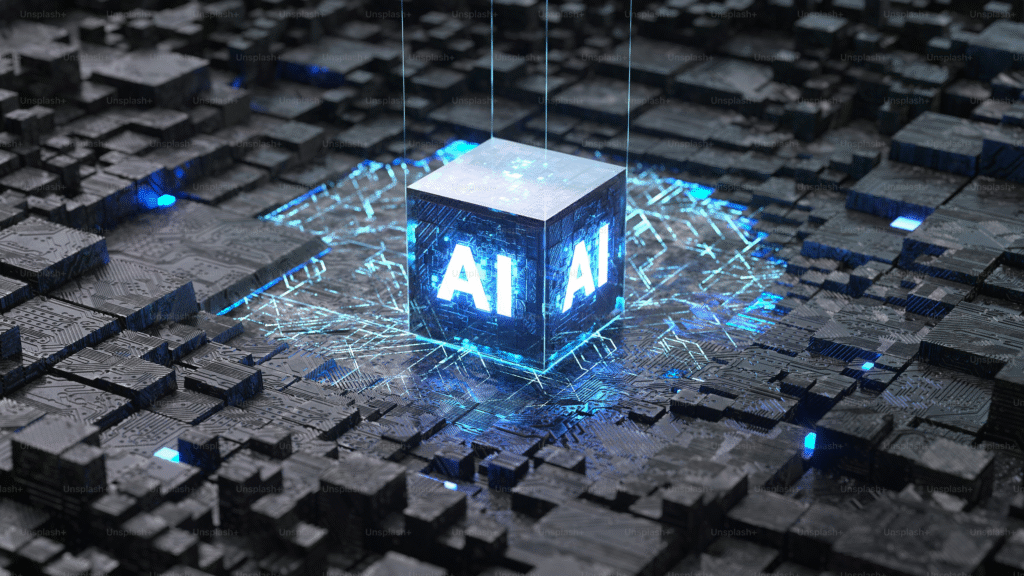Artificial Intelligence (AI) is one of the most talked about topics today. From helping doctors predict diseases to creating tools that support students in learning, AI has shown its value everywhere. But behind this amazing technology lies a deep question — should all countries have access to the most advanced AI chips that make this technology possible? Recently, a heated debate began in the United States when President Donald Trump decided to allow chip-making companies like Nvidia and AMD to sell their advanced AI chips to China in exchange for giving 15% of sales revenue back to the U.S. government.
At first, this might sound like a good deal. America still earns money, the companies get to expand their business, and China gains access to modern technology. But many top Democrats in the Senate believe this is not just about money. They believe this decision could endanger the safety and future of America.
On Friday, six Democratic senators — Chuck Schumer, Mark Warner, Jack Reed, Jeanne Shaheen, Christopher Coons, and Elizabeth Warren — wrote an open letter to Trump. In the letter, they asked him to seriously reconsider this decision. Their words were strong and filled with worry. “Our national security and military readiness relies upon American innovators inventing and producing the best technology in the world, and in maintaining that qualitative advantage in sensitive domains,” the letter stated.
The senators reminded Trump that the U.S. has always stayed strong because it has managed to keep the best technology away from its rivals. For them, the idea of selling powerful AI chips to China feels like giving away America’s secret weapon. “The willingness displayed in this arrangement to ‘negotiate’ away America’s competitive edge that is key to our national security in exchange for what is, in effect, a commission on a sale of AI-enabling technology to our main global competitor, is cause for serious alarm,” the letter continued.

Why are they so concerned? These advanced chips — Nvidia’s H20 and AMD’s MI308 — are not just ordinary computer parts. They are the brains behind advanced AI systems. With them, countries can run faster calculations, train smarter machines, and even build powerful defense technologies. For senators, selling such chips to China could indirectly support its military growth. If China uses this technology to improve its weapons or strategies, it could shift the balance of power worldwide.
But not everyone agrees with this warning. Nvidia, one of the companies involved, quickly responded. A spokesperson told CNBC: “The H20 would not enhance anyone’s military capabilities, but would have helped America attract the support of developers worldwide and win the AI race. Banning the H20 cost American taxpayers billions of dollars, without any benefit.” According to Nvidia, their chips are not dangerous tools but valuable engines of progress. From their point of view, stopping sales has already caused America to lose money while slowing down innovation.
AMD, the other company in this deal, did not immediately share a comment. But the silence only adds to the ongoing curiosity — what do they really think about the warnings from lawmakers? Do they see this deal as a risk or simply as an opportunity to grow in one of the world’s largest markets?
This debate raises a bigger question: who should control the future of AI? On one side, there is the dream of global cooperation, where technology is shared and used to solve common human problems. Imagine AI helping farmers in different countries grow crops more efficiently, or scientists around the world using AI to discover new medicines. On the other side, there is fear — the idea that the same technology could be used for war, control, or spying. If advanced chips fall into the wrong hands, they might create machines smarter than humans can handle, and not always for good reasons.
The senators who signed the letter clearly believe that national security should come first. They see the deal as short-sighted, like selling off long-term safety for short-term money. Their message to Trump is not just about protecting America’s borders, but also about protecting America’s lead in technology. For them, once that lead is lost, it may never return.
But companies like Nvidia see things differently. For them, innovation is a race, and blocking trade slows the race down. They argue that by banning sales, the U.S. is not protecting itself but instead hurting its own economy. Their statement points out that America already lost billions of dollars because of restrictions, without gaining anything in return.
This disagreement between lawmakers and companies highlights a deep challenge of our times. Technology is growing faster than rules and policies can catch up. While governments think about safety, companies think about progress. Both sides are right in their own ways, but finding a balance is not easy.
What will happen next? Will Trump listen to the senators and pull back the deal? Or will he continue with his plan, believing that the 15% revenue share makes it worth the risk? And most importantly, what does this mean for the future of AI?
As the world watches, one thing is clear — AI is no longer just about smart apps or helpful tools. It has become a matter of global power, politics, and control. Decisions made today about who gets access to advanced AI chips could shape the future of nations. Will AI be remembered as a tool that united the world, or as a spark that created more divisions? That is a question only time will answer.
“Every technology has two faces,” a wise teacher once said. “One can light up the world, and the other can burn it down.” The story of these AI chips is another reminder of this truth.








